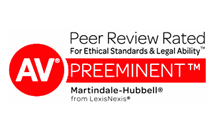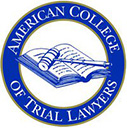Compensatory vs. Punitive Damages: What’s the Difference?
After an accident, it’s normal to worry about how you’re going to get your life back, pay your bills, and resume the activities you enjoyed before you got hurt. It’s also normal to feel overwhelmed by the technical words and phrases associated with personal injury claims.
If you have been injured, you have probably wondered how much your personal injury claim is worth. When courts award compensation, they can break it down into different types of damages, including what are known as compensatory and punitive damages.
Compensatory Damages
Also referred to as “actual damages”, compensatory damages are designed to put the injured person back to, as closely as possible, the state he was in before the accident. Although it’s impossible to fully restore an injured person to where he was before he got hurt, compensatory damages try to come as close as possible. These damages can include things like medical expenses, lost wages, property damage, and decreased earning potential. Compensatory damages can also include intangible costs such as pain and suffering.
Punitive Damages
As the name indicates, punitive damages are awarded as a way to “punish” the defendant or deter negligent behavior. For example, a court may award punitive damages when a defendant drove drunk and caused the plaintiff to suffer injuries. In another example, courts have been known to grant punitive damages against pharmaceutical companies that produce defective drugs that lead to injuries. Courts don’t always award punitive damages and these damages are typically left to the court’s discretion.
Iowa Personal Injury and Workers’ Compensation Law Firm
Regardless of the circumstances of your case, it’s important to work with an experienced lawyer before speaking to an insurance company about negotiating or settling your personal injury case. Your attorney can make sure you receive a settlement that fully and fairly compensates you for your injuries and other losses. Contact Attorney Ed Keane today at (712) 234-3088 to discuss your case.
This website has been prepared by Keane Law Firm for informational purposes only and does not, and is not intended to, constitute legal advice. The information is not provided in the course of an attorney-client relationship and is not intended to substitute for legal advice from an attorney licensed in your jurisdiction.




